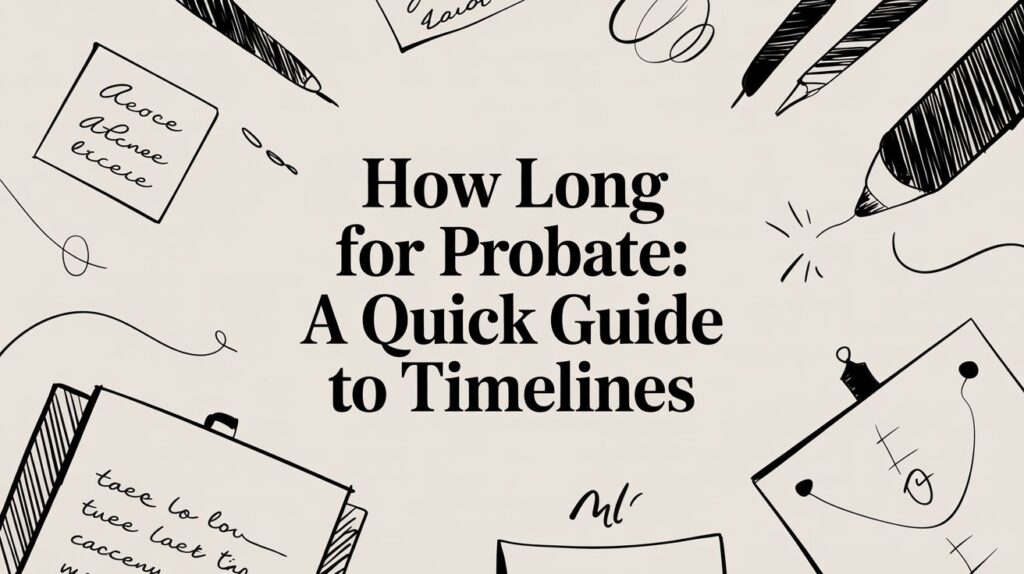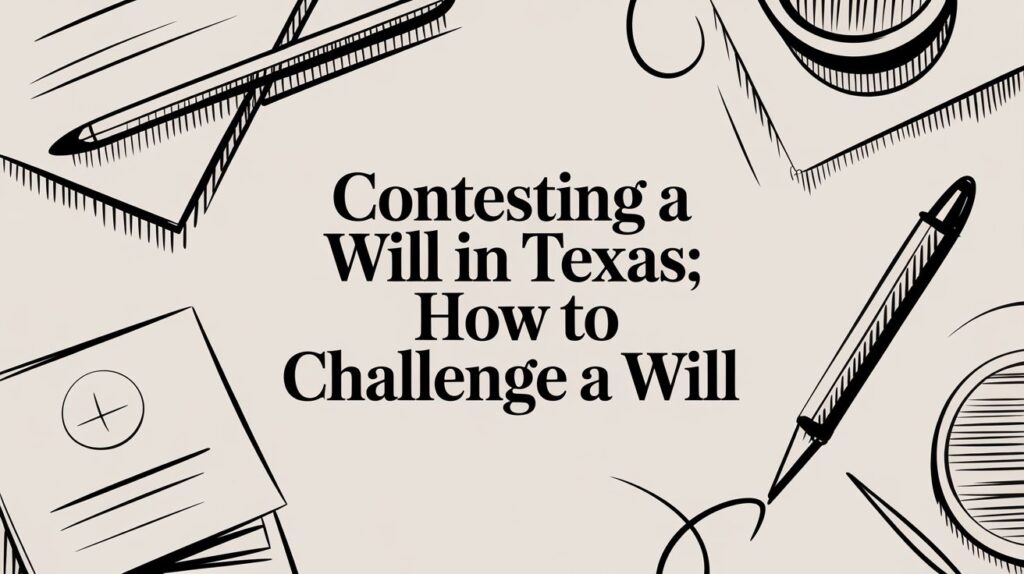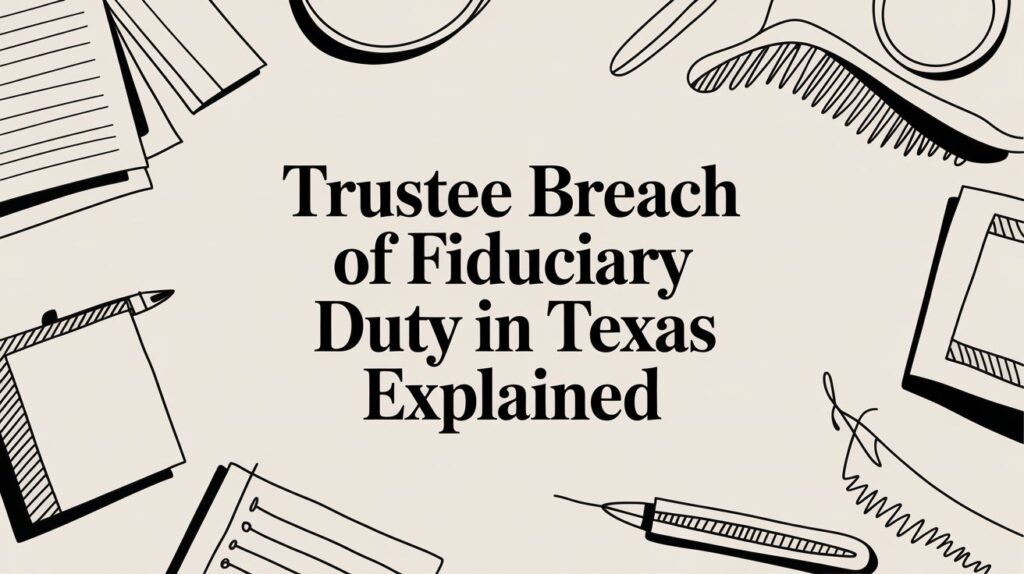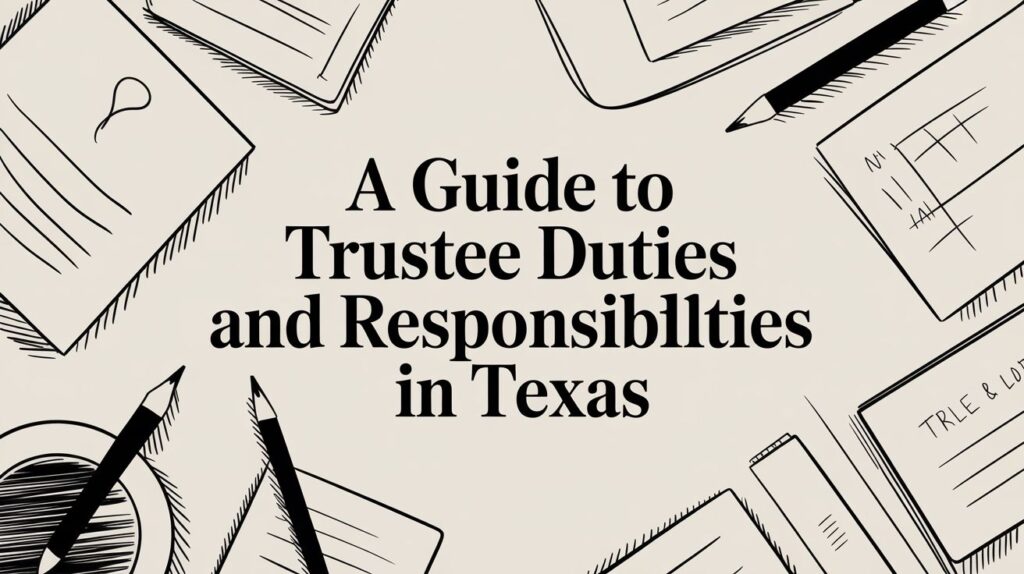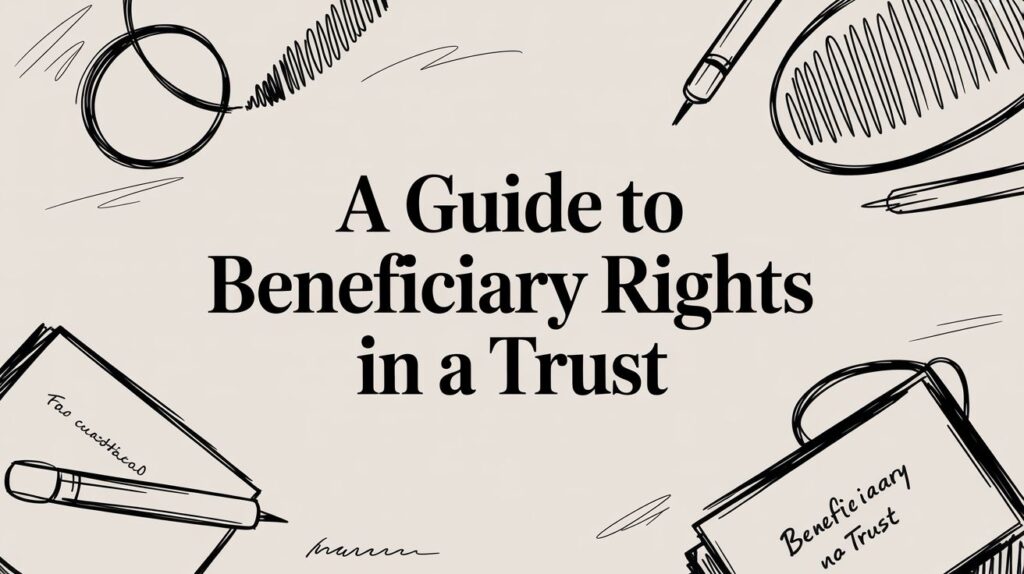Managing a loved one's estate can feel overwhelming, but understanding the probate process in Texas is the first step toward clarity and peace of mind. While every estate is unique, probate in Texas typically spans 4 to 12 months. A straightforward, uncontested case with well-organized paperwork might conclude in just a few months. However, complications like a disputed will or creditor claims can extend the process beyond a year. With the right legal guidance, it doesn’t have to be a daunting journey.
Probate Timelines You Can Expect In Texas
Think of the probate process as a series of steps, each with its own timeline. It begins when an application is filed with the county court and concludes when the executor distributes the remaining assets to the heirs. While each phase has its own pace, knowing what to expect can help ground your expectations and prepare you for the road ahead.
- Initial Filing and Notice: Usually 1–2 weeks for the court to acknowledge the filing.
- Inventory and Appraisal: Often 2–3 months as the executor locates and values all assets.
- Addressing Claims and Debts: Creditors typically have 1–3 months to file claims against the estate.
- Distribution and Closing: Final transfers of assets generally take 1–4 months to complete.
The diagram below from Wikipedia outlines the basic probate flow.

This image shows the key steps courts follow to validate wills and distribute an estate.
Estimating Common Probate Scenarios
Below is a quick reference for different estate types and their typical timelines in Texas.
Estimated Probate Timelines in Texas
Description: This table outlines estimated probate durations based on estate complexity and potential disputes.
| Estate Scenario | Estimated Timeline |
|---|---|
| Simple estate with no disputes | 4–6 months |
| Medium complexity with debts and appraisals | 6–9 months |
| Contested will | 9–12+ months |
For even simpler situations, estates qualifying for a muniment of title or a small estate affidavit under the Texas Estates Code can wrap up in as little as two months.
The size of the county also plays a role. Smaller jurisdictions often process paperwork more quickly than busier urban courts. Partnering with a Texas probate lawyer who understands local court rules and procedures can help streamline each stage.
While most cases fall within the 6–9 month window, proactive planning and well-organized records can save valuable time. Key factors include the size of the estate, will contests, court backlogs, and the executor’s efficiency.
Interestingly, digital tools are gaining traction. For example, during the COVID-19 pandemic, UK digital probate grants averaged 4.9 weeks versus 12.3 weeks for paper filings. Learn more about these findings on SavingAdvice’s research.
Executors often face months-long waits in probate courts still resolving cases filed as far back as 2021.
Tips To Stay On Track
- Gather all key documents before you file to reduce back-and-forth.
- Consult a Texas probate attorney early—local insight matters.
- Opt for e-filing where available to speed up court acceptance.
- Keep beneficiaries in the loop to nip disputes in the bud.
To deepen your understanding, check out our guide on Understanding what you need to know about Texas probate.
Taking on the Texas Probate Process, Step by Step
The Texas probate process can feel like a legal maze, but it’s actually a well-defined path governed by the Texas Estates Code. This set of laws serves as the official playbook for ensuring a person's assets are transferred to the right people after they pass away.
Let's walk through that playbook one step at a time. Our goal is to explain the legal jargon in plain English and show you exactly what an executor needs to do, from the first filing at the courthouse to the final distribution of assets. You’ll gain a clear understanding of your fiduciary duties in Texas and what happens at every stage.
Step 1: Filing the Will and Kicking Things Off
The journey begins when the person named as executor in the will files an Application for Probate with the appropriate county court in Texas. This must be done within four years of the person's death. The application is a formal request for the court to legally recognize the will and officially authorize the executor to act.
Once the application is filed, the county clerk posts a public notice at the courthouse. This serves as a heads-up that a probate case has started, giving anyone with an interest in the estate a chance to come forward. This waiting period, typically about two weeks, ensures transparency before the hearing.
Step 2: The Court Hearing and Getting the Keys to the Estate
After the short waiting period, a court hearing is held. A judge will review the will and the application and listen to brief testimony to ensure everything is in order. This is usually a straightforward process, especially if the will was well-drafted and there are no disputes.
Once satisfied, the judge will sign an order that officially "admits the will to probate." The judge will also appoint the executor and grant them “Letters Testamentary.” This single document is incredibly important. It is the executor's legal authority to manage estate assets, pay bills, and communicate with financial institutions on behalf of the estate.
Delays can happen anywhere in the process, often just from courts being backed up. For instance, in the UK, complex probate applications can exceed a year due to manual processing requirements, a stark contrast to streamlined digital systems. You can read more about probate waiting times and their impacts and see how things compare elsewhere.
Step 3: Taking Stock of Everything the Estate Owns
One of the executor's primary responsibilities is to create a complete list of everything the deceased person owned. Within 90 days of being appointed, the executor must file a detailed document with the court called an "Inventory, Appraisement, and List of Claims." This is a full accounting of all assets, from real estate and vehicles to bank accounts and personal belongings.
A crucial part of this step is determining the value of each asset. This means understanding fair market value to ensure the inventory is accurate. An experienced Texas estate planning attorney can provide invaluable guidance, as correct valuations are essential for the court, the IRS, and the beneficiaries.
Step 4: Notifying Creditors and Clearing Debts
With the inventory complete, the executor's next task is to notify creditors of the person's passing. In Texas, this is formally done by publishing a notice in a local newspaper. Known creditors, such as a mortgage company or credit card issuer, must also be notified directly.
Creditors then have a specific period to submit any claims for money owed by the estate. The executor must review each claim for validity and pay it using estate funds. This step ensures that all financial obligations are settled before assets are distributed to heirs, protecting them from future liabilities. This is a key responsibility in the probate process.
Step 5: Distributing the Assets and Closing the Books
Finally, the moment everyone has been waiting for. Once all debts, taxes, and funeral expenses have been paid, the executor can distribute the remaining assets to the beneficiaries named in the will. It is wise for the executor to obtain a signed receipt from each beneficiary confirming they have received their inheritance.
With all assets distributed, the estate can be formally closed. While Texas law does not always require a final accounting to be filed with the court, doing so is a recommended practice. It provides a legal shield for the executor and gives everyone involved a clear sense that the process is officially complete.
The Four Key Phases Of Texas Probate
When you ask, “how long for probate?”, it helps to view the process not as one long marathon but as four distinct phases. Each phase has its own checklist, timeline, and legal requirements under the Texas Estates Code.
It’s like following a recipe: you gather your ingredients, prepare them, cook, and finally, serve the meal. In probate terms, that recipe starts with filing paperwork and ends when property is transferred to the heirs.
Phase 1: Filing And Issuing Notices
Phase one begins when the executor files an Application to Probate Will and for Issuance of Letters Testamentary. The executor—often with the help of a Texas probate attorney—has four years from the date of death to file this application with the court.
After filing, the court clerk posts a public notice. This announcement gives creditors or potential heirs approximately two weeks to come forward before the first court hearing.
Phase 2: Inventory And Appraisal Of The Estate
Once the judge validates the will and officially appoints the executor, the detailed work begins. Within 90 days, the executor must submit an Inventory, Appraisement, and List of Claims. This document itemizes every asset, including:
- Real Estate: Primary residence, rental properties, land.
- Financial Accounts: Checking, savings, investment, and retirement accounts.
- Personal Belongings: Vehicles, jewelry, artwork, furniture.
- Business Interests: Shares, partnerships, or sole proprietorships.
Assigning accurate fair-market values as of the date of death is not just a formality—it provides the foundation for paying debts and distributing what remains.
Phase 3: Managing Debts And Paying Creditors
Inheritances cannot be distributed until all bills are paid. In this stage, the executor notifies creditors—through a newspaper notice and direct mail to known lenders—and then reviews and settles each claim.
An executor’s role is more than administrative; it’s a fiduciary duty. Mishandling creditor notices or payments can lead to personal liability.
Once all valid debts are settled, the estate is ready for distribution.
Phase 4: Distribution Of Assets And Closing The Estate
At last, the final step: distributing what’s left. The executor distributes assets exactly as specified in the will and asks each beneficiary to sign a receipt. This creates a paper trail proving that every asset found its rightful owner.
Although Texas does not always require a final accounting, filing one promotes transparency and protects the executor from future disputes. With that, the probate process officially concludes.
To learn more about the complete journey, you can explore our detailed guide on Texas estate administration: Texas estate administration.
What Really Influences Your Probate Timeline
Pinning down a precise probate timeline can feel like trying to predict Texas weather—it’s full of variables. However, an experienced probate attorney knows which factors to watch. The timeline isn't random; it's shaped by a few key elements that can either speed things up or cause significant delays.
Think of a simple estate as a small jigsaw puzzle. A complex one is more like a 1,000-piece puzzle with lots of sky. A single bank account is easy to handle, but an estate with multiple properties, business interests, and out-of-state assets adds layers of complexity that naturally take more time.
Major Factor One: The Complexity Of The Estate
It is one thing to probate a simple will with a house and a checking account. It is a completely different challenge when you are dealing with an estate that includes real estate, a stock portfolio, retirement accounts, and a family business.
Each of these assets requires a unique process. You will need official appraisals for property and business valuations, all while complying with the rules laid out in the Texas Estates Code. It all adds up.
- Asset Diversity: Juggling different types of assets like properties, business interests, and various financial accounts means a more detailed inventory and management process.
- Valuation Requirements: Obtaining professional appraisals for real estate and business assets is not an overnight task. This step alone can stretch on for months.
- Trust Administration Steps: If some assets are in a trust, they might avoid probate, but that doesn't mean they are instantly distributed. The trustee still has duties and accounting to handle.
Then, there's the human element. Family conflicts or a contested will can disrupt even the most straightforward plans, potentially leading to messy court disputes. An executor has a fiduciary duty to settle all claims and conflicts before distributing assets, and these legal battles can extend the timeline by months or even years.
Court Efficiency And Record Quality
Not all Texas courts operate at the same speed. Busy urban courts in cities like Houston or Dallas often have significant backlogs, which means you could wait longer just to get a hearing date.
On the other hand, being prepared makes a huge difference. Well-organized estate records—clear deeds, account statements, and a straightforward will—can accelerate filings and reduce the court's need for more information. A little preparation can easily shave weeks off the process.
“A contested will adds unpredictability and can double or triple standard timeframes.” – Bryan Fagan
Don't forget about creditors. The Texas Estates Code gives creditors a specific window to make claims against the estate. If the executor misses a notice deadline or handles it incorrectly, the court may need to extend the timeline, causing further delays.
Leveraging Professional Guidance
This is where having an experienced Texas probate attorney pays off. They know the process inside and out. They can help you navigate complexities, ensuring every filing is accurate and every notice is sent on time. Think of them as a pilot guiding your estate through the often-turbulent legal airspace.
A good attorney helps you:
- Ensure every action complies with the Texas Estates Code.
- Get all financial records properly organized and valued.
- Handle creditor notices promptly and correctly.
- Negotiate family disputes before they escalate into costly court battles.
So, when you ask, “how long does probate take?” what you are really asking is how to manage these influential factors. While you cannot control the court's schedule, you can control your own preparation. A solid plan, timely filings, and clear communication can prevent many of the most common delays.
By understanding what influences the timeline, you can set realistic expectations instead of simply hoping for the best.
Global Market Trends
This is not just a local issue. The challenges of estate administration are recognized worldwide. The global estate administration services market was valued at $50 billion in 2025 and is projected to grow at a 7% CAGR through 2033. That reflects just how complex these matters have become and why so many people are seeking professional help.
Similarly, the estate planning sector hit $297 million in 2024 and is expected to reach $503 million by 2032. This growth is directly tied to people wanting to avoid probate headaches by creating solid wills and trusts ahead of time. (Read the full research about estate administration growth)
Identifying potential roadblocks early allows you to focus on what you can control. Engaging a Texas estate planning attorney to evaluate asset protection strategies is a proactive first step.
For more hands-on support, exploring our probate services or guardianship services can take the guesswork out of the equation.
Learning more about estate planning is the best way to mitigate delays before probate even begins.
- Keep beneficiaries in the loop with regular updates to prevent misunderstandings.
- Create a clear checklist of all necessary documents, including deeds, account statements, and tax records.
- Use secure digital tools to share documents, ensuring you stay compliant with the Texas Trust Code.
A proactive approach today is the surest path to a smoother probate process tomorrow.
Actionable Strategies to Streamline the Probate Process

While many factors influencing the probate timeline are out of your control, an executor can take meaningful steps to shorten the process. You are not just a passenger on this journey; your actions can shave months off the probate clock. With a proactive approach, you can navigate the Texas Estates Code efficiently and sidestep many common delays.
Think of it like preparing for a long Texas road trip. You cannot control the traffic on I-35, but you can make sure your vehicle has a full tank, your route is planned, and everyone is prepared. In the same way, an organized executor can steer the estate toward a much smoother, faster resolution.
Engage a Texas Probate Attorney from the Start
One of the smartest moves you can make is to partner with an experienced Texas probate attorney right from the beginning. Attempting to handle probate alone often leads to simple filing mistakes, missed deadlines, or incorrect procedures—all of which can grind the process to a halt.
An attorney who knows the local county court’s procedures can ensure every document is filed correctly the first time. They act as your professional guide, helping you anticipate legal hurdles and comply with every requirement of the Texas Estates Code. This initial investment can save months of frustration and potentially thousands in legal costs down the road.
An executor’s role is a fiduciary one, meaning you have a legal duty to act in the best interests of the estate and its beneficiaries. An attorney ensures you fulfill these fiduciary duties in Texas, protecting you from personal liability.
Hiring professional help is not just about paperwork. It is about gaining peace of mind, knowing that a seasoned expert is guiding you and advocating for the estate's efficient settlement.
Prioritize Organization and Communication
Disputes among beneficiaries are one of the biggest reasons probate drags on. More often than not, these conflicts arise from a lack of information or simple misunderstandings. As the executor, you can prevent many of these issues with clear, consistent communication.
Keeping all beneficiaries informed about the progress, timelines, and key decisions builds trust and makes legal challenges less likely. Equally important is maintaining meticulous records of every estate asset, debt, and transaction. A well-organized inventory makes court filings smoother and provides transparent answers when questions arise.
- Create a Centralized File: Gather all essential documents—the will, deeds, bank statements, tax returns—in one place, whether it is a physical binder or a secure digital folder.
- Maintain a Communication Log: Keep a simple record of your calls and emails with beneficiaries and creditors. It can be a lifesaver.
- Provide Regular Updates: A straightforward monthly email can manage everyone's expectations and keep them informed.
Explore Alternatives to Full Probate
Here is some good news: not every estate in Texas has to go through the full, formal probate process. For smaller or less complicated estates, the law offers several shortcuts that can dramatically shorten the answer to "how long for probate?"
These alternatives can settle an estate in a fraction of the time and at a much lower cost.
- Small Estate Affidavit: If the estate's value (not including the homestead) is $75,000 or less, the heirs can use a Small Estate Affidavit to collect property without any formal probate proceeding. This is often the quickest path available.
- Muniment of Title: This is a unique Texas procedure that works when there is a valid will and no outstanding estate debts (other than mortgages on real estate). The court essentially certifies the will as the legal document transferring property ownership, completely bypassing the need for an executor and a lengthy administration period.
Of course, the best strategy for many families is avoiding probate altogether through smart estate planning. To learn more, check out our detailed guide on avoiding probate for efficient estate distribution. For a deeper dive into handling the property side of things, which is often intertwined with probate, consider these insights on streamlining property-related legal processes from industry experts.
A knowledgeable Texas estate planning attorney can help you determine if one of these faster options is the right fit for your family's situation.
Real-World Texas Probate Scenarios
Discussing timelines and legal phases is one thing, but seeing how these factors play out in the real world provides greater clarity. The question "how long for probate" truly comes to life when you walk through a few common scenarios.
Let's look at a couple of examples to see how dramatically the probate duration can vary based on a family's circumstances. These stories illustrate why a one-size-fits-all answer doesn't exist—each family’s journey through the Texas Estates Code is unique.
Scenario One: The Streamlined Austin Estate
Imagine Sarah, who passed away in Austin, leaving behind a clear, professionally drafted will. Her son, Mark, is named as the executor and is the sole beneficiary. The estate itself is straightforward: a paid-off house in Travis County, a single bank account, and personal items. There are no debts or complications.
Because a Texas estate planning attorney prepared Sarah’s will, it is "self-proved," which is a huge time-saver as it eliminates the need for witnesses to appear in court. Mark hires a probate lawyer who files the application immediately. With no family disputes and no outstanding debts, the process moves smoothly.
- Timeline Breakdown:
- Month 1: The application is filed, and the court sets a hearing date.
- Month 2: Mark is officially appointed executor by the judge and receives his Letters Testamentary.
- Month 3: The inventory of Sarah's assets is completed and filed with the court.
- Months 4-5: The house title is transferred to Mark, the bank account is closed, and the estate is officially settled.
This is a best-case scenario. The entire process is completed in just five months. The key elements were a solid will, no family conflicts, simple assets, and a lawyer who kept the process on track.
Scenario Two: The Complex Houston Business Estate
Now, let's consider a different scenario in Houston. David has passed away, leaving a family business, several real estate properties, and a blended family with children from two marriages. His will is problematic. He wrote it himself years ago, and the language regarding the division of the business is vague and confusing.
Trouble begins almost immediately. The children from his first marriage feel they deserve a larger share of the business and decide to contest the will. This action brings the entire administrative process to a halt while the court addresses the will contest.
A contested will is the single biggest factor that can extend probate. A process that should take months can easily stretch into a year or more as the family resolves disputes in court. This highlights how critical clear, professional estate planning is for preventing conflict.
David's second wife, the executor, now has a much larger task. She must hire business valuators and real estate appraisers, which adds months to the inventory process alone. On top of that, business creditors begin filing claims that must be carefully reviewed and paid.
- Timeline Breakdown:
- Months 1-3: The will is filed, but the other heirs immediately launch a will contest.
- Months 4-9: The court hears arguments while the families attempt to reach a settlement through mediation. Meanwhile, appraisers are busy valuing the business and properties.
- Months 10-12: The will contest is finally settled. The executor can now focus on paying off all business and personal debts.
- Months 13-15: With all disputes resolved and creditors paid, the assets are finally distributed according to the settlement agreement, and the estate can be closed.
This probate took well over a year to complete. The combination of a contested will, complex assets requiring professional valuation, and family disputes created one delay after another.
Got Questions About Texas Probate? We've Got Answers.
When you are navigating the probate process, it is natural for questions to arise. Let's address some of the most common ones with straightforward answers based on the Texas Estates Code to help you move forward with confidence.
Can an Executor Actually Speed Things Up?
Absolutely. An executor’s actions can significantly impact the probate timeline. A proactive, organized executor who files paperwork correctly and on time can make a world of difference.
Keeping the lines of communication open with all beneficiaries is another crucial factor. When everyone is informed, it helps prevent disputes before they can begin. Additionally, responding quickly to court requests keeps the process from stalling.
One of the smartest moves an executor can make is partnering with an experienced Texas probate attorney. A skilled lawyer helps you avoid common procedural pitfalls that cause delays, ensuring every step is handled correctly from the start.
What Happens if Someone Contests the Will?
This is where things can become complicated and lengthy. A contested will is not a minor hiccup; it is a formal legal challenge that puts the entire probate case on hold. When a will is challenged, the estate administration process is paused while the court schedules hearings, reviews evidence, and resolves the conflict.
This type of litigation can easily add months, and sometimes years, to the timeline. It transforms what should be a straightforward administrative process into a full-blown court battle. Untangling these disputes requires careful legal work to protect the estate and honor the final wishes of the deceased.
The best defense against a will contest is a good offense: clear, professional estate planning. When a will leaves no room for ambiguity, it is much harder to challenge, ensuring your final wishes are carried out without a lengthy courtroom saga.
Does Every Single Estate in Texas Go Through Probate?
No, not at all. Texas law recognizes that a one-size-fits-all approach does not work for every estate. The Texas Estates Code offers alternatives for smaller or less complicated situations. For example, if an estate's value is below a certain threshold, it may qualify for a Small Estate Affidavit, which is a much simpler and faster process.
Furthermore, many types of assets are designed to bypass probate entirely. These include:
- Assets held within a living trust.
- Life insurance policies with designated beneficiaries.
- Retirement accounts (like an IRA or 401(k)) with named beneficiaries.
- Bank accounts set up with a "payable-on-death" (POD) designation.
This is where thoughtful estate planning truly shines. By structuring your assets correctly ahead of time, you can make things significantly easier for your loved ones down the road.
If you’re managing an estate or planning your own, contact The Law Office of Bryan Fagan, PLLC for a free consultation. Our attorneys provide trusted, Texas-based guidance for every step of the process.

